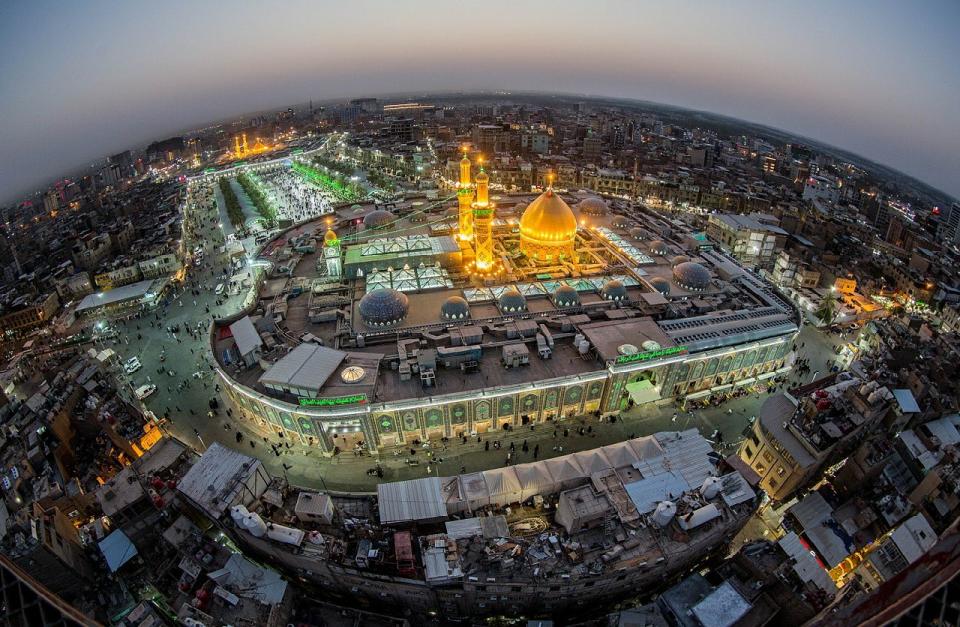Ali Kumayl Khan
The Daily Star.net
Imam Hussain (RA) stands tall among even the giants peppering Islam's history, revered for his tenacity, indomitable spirit, and the ultimate sacrifice he and his people made. His spirit often provides inspiration whenever people stand against tyranny, or even just to do the right thing.
Hussain was the beloved grandson of the Prophet Muhammad (S); he was the son of the Prophet's daughter Fatimah (RA) and Ali (RA), the fourth caliph of Islam.
The Prophet Muhammad (S) is reported to have said, "Hussain is from me and I am from Hussain" which scholars have explained as meaning, "Hussain has acquired his existence through me and is the means of the survival of my religion."
He is an important figure in Islam as he was a member of the Household of Muhammad (Ahl al-Bayt) and the People of the Cloak (Ahl al-Kisā'), and extraordinary in the unique station granted to him by Allah.
His biggest contribution is understood to be the rejuvenation or revival of the true nature of Islam, which the current rulers of the time, especially Yazid, were actively corrupting. His role, in essence, in the words of the preacher Hazrat Moinuddin Chishti, also known as Khwājā Ghareeb Nawaz, is thus—
"Sar dad, na dad dast, dar dast-e-yazeed, Haqaa key binaey La ila ast Hussain". Literally, it means "Hussain gave his head but not his hand (allegiance) to Yazid, Maintainer of the truth is not anyone but Hussain."
His legacy is the inspiration to stand up against wrongdoers and injustice and has spurred on many a movement, and many men, like those that participated in the independence movement of India against the British (1947). This can be surmised from the fact that Gandhi reportedly said, "I learned from Hussain how to be wronged and be a winner, I learnt from Hussain how to attain victory while being oppressed," and further, "If I had an army like the 72 soldiers of Hussain, I would have won freedom for India in 24 hours."
People like Nelson Mandela also followed Imam Hussain's teachings. Once Nelson Mandela said, "I have spent more than 20 years in prison, then one night I thought of surrendering by signing all the terms and conditions of the government.
But suddenly I thought of Imam Hussain and the Karbala movement. Imam Hussain gave me strength to stand for the right of freedom and liberation and I did."
The tragedy of Karbala is an unparalleled event in the history of mankind. The great sacrifice made by Imam Hussain, the grandson of the Holy Prophet (S), on Ashura (The 10th of Muharram 61 AH) and the steadfastness shown by him is a beacon for all oppressed, everywhere.
At Karbala, the small traveling party of Imam Hussain was besieged by more than 20,000 armed men of the tyrant Yazid ibn Muawiyyah, a usurper of the caliphate. Imam Hussain denied him his allegiance, and as a result, Yazid's men carried out unspeakable torture on Hussain, his family, and entourage, until the almost complete annihilation of the group.
Yet, this impossible stand by a small group of steadfast people, and the torture carried out on them, is what ultimately struck the mightiest blow to the foundation of the oppressive Umayyad Dynasty, as it ignited a series of revolts Although, Imam Hussain and his companions were martyred and their family members, especially the women of the household and Imam Hussain's only surviving son, Imam Zainul-Abedin were taken as prisoners, history clearly shows the true victor— righteousness.
On Ashura, the world mourns Imam Hussain and his kith and kin. Imam Hussain, the symbol of truth, piety and justice had been representing Islam in its entirety stood on one side of the river Euphrates with his small group of only 72 comprising of his brothers, sons, nephews and companions, old and young. There was even one, Habib Ibne Mazahir, a friend of Hussain, being eighty years old but steadfast in his mission.
Opposite them, blocking access to water for days, stood Yazid's commander Umar ibn Saad, with thousands of well-armed soldiers.
Before the prayers of Asr on that fateful day in October, 680 AD, the Battle of Karbala was over. The 72 male companions of Imam Hussain were martyred along with Imam Hussain's six-month-old son, Ali Asghar. He was killed by a three-headed arrow that was used to hunt wild animals in the desert, shot by the enemy's ace archer Hurmullah Ibn Kahil Al Asadi Alkoofi.
Imam Hussain had stepped out of the tent to appeal to whatever shred of humanity was left in the cold and cruel hearts of Yazid's soldiers for a little water for the parched throat of the baby.
The story of Karbala is universal, the struggle true to all oppressed. Poet says, "Let humanity awaken and every nation will claim Hussain as their own. In the martyrdom of Imam Hussain lies the death of Yazid, for Islam resurrects after every Karbala."

